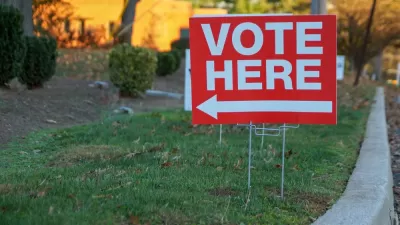None of the major presidential candidates are paying enough attention to the nation's deteriorating infrastructure, according to this article.
"Road, bridge and other important public-works infrastructure continue to age and deteriorate as Congress dithers elsewhere. Only disasters move our representatives to act - and in an election year, even those actions seem spotty at best and disingenuous at worst.
The United States has much more than failing bridges to find, fund and fix. The proposals of the remaining presidential candidates do little to inspire faith that they understand the breadth of the problem or have the political skill, will and courage to address it forthrightly.
The United States needs to spend $225 billion annually - more than twice what it does now - for the next 50 years. That's more than $11 trillion worth of fix-ups on surface transportation systems alone.
But at the moment, the only bill of significance floating through Congress is the National Infrastructure Bank Act written by Sens. Chris Dodd and Chuck Hagel. It's backed by the American Society of Civil Engineers because it "would establish an independent entity of the federal government to evaluate and finance ‘capacity-building' infrastructure projects of substantial regional and national significance [emphasis added] " The word "local" is absent from the bill, so those potholes ruining your car's suspension will just have to wait.
What about refineries, pipelines, mass transit systems, transmission lines for electricity, air traffic control, weather forecasting systems, and aging chemical and nuclear plants?
Failure to address long-standing, critical infrastructure needs is a threat to national security. But the political stances taken by the remaining presidential candidates, as evidenced by issues positions on their Web sites, do not reflect necessary urgency regarding the nation's infrastructure needs. Their positions are vague, and financial proposals offer a scant percentage of what's needed."
FULL STORY: Pols fail to comprehend breadth of infrastructure crisis

Maui's Vacation Rental Debate Turns Ugly
Verbal attacks, misinformation campaigns and fistfights plague a high-stakes debate to convert thousands of vacation rentals into long-term housing.

Planetizen Federal Action Tracker
A weekly monitor of how Trump’s orders and actions are impacting planners and planning in America.

In Urban Planning, AI Prompting Could be the New Design Thinking
Creativity has long been key to great urban design. What if we see AI as our new creative partner?

King County Supportive Housing Program Offers Hope for Unhoused Residents
The county is taking a ‘Housing First’ approach that prioritizes getting people into housing, then offering wraparound supportive services.

Researchers Use AI to Get Clearer Picture of US Housing
Analysts are using artificial intelligence to supercharge their research by allowing them to comb through data faster. Though these AI tools can be error prone, they save time and housing researchers are optimistic about the future.

Making Shared Micromobility More Inclusive
Cities and shared mobility system operators can do more to include people with disabilities in planning and operations, per a new report.
Urban Design for Planners 1: Software Tools
This six-course series explores essential urban design concepts using open source software and equips planners with the tools they need to participate fully in the urban design process.
Planning for Universal Design
Learn the tools for implementing Universal Design in planning regulations.
planning NEXT
Appalachian Highlands Housing Partners
Mpact (founded as Rail~Volution)
City of Camden Redevelopment Agency
City of Astoria
City of Portland
City of Laramie





























